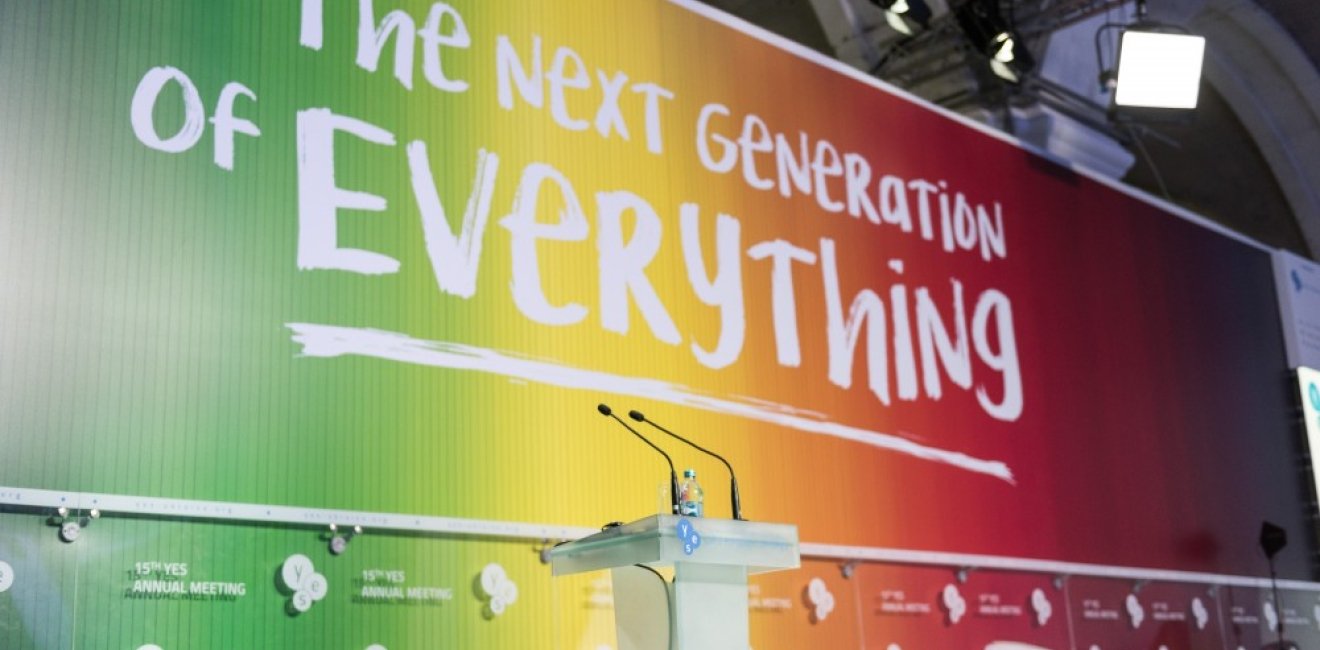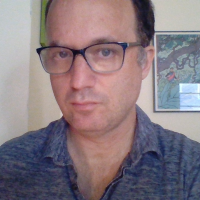
A blog of the Kennan Institute
BY NIKOLAS KOZLOFF
As campaigning gets under way for Ukraine’s upcoming March 2019 presidential election, what’s the political mood in the country? Recently I had the opportunity to attend the Yalta European Strategy (YES) conference in Kyiv, which brings together hundreds of elite politicians, economists, experts, and business leaders. Emblazoned across huge banners in the conference hall was the theme of this year’s YES conference: “The Next Generation of Everything.” But while individual panels sought to clarify what the future might hold for Ukraine, the EU, and NATO, participants seemed somewhat unsure about where broader geopolitics may be headed.
To get a sense of the mood within the Western alliance, I caught up with some Estonians who were attending the conference. Unlike Ukraine, Estonia is a member of NATO as well as of the EU, and the Baltic nation has sought to shore up Kyiv’s cyber defenses. On the margins of the conference, I spoke with Marko Mihkelson, chairman of the Estonian parliament’s Foreign Affairs Committee. “It would be a surprise,” he told me, “if Russia didn’t attempt to sway hearts and minds” by conducting some sort of hybrid intervention in advance of the Ukrainian presidential election. The Kremlin could make use of any number of underhanded means at its disposal, such as trying to influence politicians or mounting disinformation campaigns. The Estonian argued that both NATO and the EU should pay more visible attention to Ukraine, adding, “I would like to see more official visits from Brussels and Washington.”
Despite the gathering storm clouds, Mihkelson seemed more or less bullish on the political challenges moving forward. To be sure, there was a great degree of political uncertainty in the aftermath of the Maidan revolution several years ago, but today Ukraine is bolstered by more Western support and is better equipped to deal with outside threats as a result. If Mihkelson was worried about Trump’s unusual pro-Russia leanings in foreign policy, the official gave no indication. “You need to contrast rhetoric with reality,” the Estonian remarked. “If you look at the situation on the ground, you see U.S. defense commitments in the wider region over the past few years. In Poland, for example, the U.S. has boots on the ground. That matters: a solid and visible deterrence is the best way to keep Russia from asserting itself in its border hinterland.”
The View from Kyiv
In contrast to Baltic officials, Vasyl Filipchuk was far less upbeat about the West. A former diplomat and senior adviser at the International Center for Policy Studies, a think tank in Kyiv, Filipchuk told me that Western support for Ukraine had been disappointing and “much less than what we would have expected.” Bear in mind, he added, that after the breakup of the Soviet Union, Ukraine voluntarily gave up its nuclear arsenal at the behest of the United States and its Western partners. In response, the latter provided security guarantees to Ukraine that seem to have been forgotten while Russian aggression rages in the Donbas. Of course, Filipchuk added soberly, in the Machiavellian world of realpolitik, “one must understand that Ukraine has never been perceived as being purely part of the West like the Baltic states, which should be protected and defended.”
Just what are the chances that Russia will try to take advantage of Ukraine, which has received lackluster support from the West? In true cloak-and-dagger fashion, Russia could disperse cash from undisclosed accounts to provocateurs or political groups in Ukraine. “These groups might even be patriotic,” Filipchuk noted, “but they would be ‘played in the dark’ and do Russia’s bidding, that is to say raise the political temperature so that Ukraine explodes.”
Liberal German View
Having spoken to experts from the Baltics and Ukraine, I was eager to get the German perspective on the East-West tensions. On the margins of the YES conference, I caught up with Marieluise Beck, director for East-Central and Eastern Europe at Berlin’s Center for Liberal Modernity. To be sure, she told me, the West should play more of a role in shoring up Ukraine’s cyber defenses to counteract electoral disinformation, “yet a bigger problem, and this is of course rumor, is that Russia might disperse cash payments to individual candidates.”
Speaking to Beck, I got the impression that Germany as a whole might not be such a reliable partner for Ukraine. Buffeted by the rise of the far right and the collapse of the political center under Angela Merkel, Berlin is navigating uncharted political waters in which the old order doesn’t hold as much weight. The problem, Beck explained, “is that vast segments of German society don’t feel like NATO is very important to them anymore, but what they don’t realize is that the transatlantic alliance is their life insurance.” Failure to protect such alliances, she warned, could give rise to more authoritarian impulses, and very quickly “you can say good-bye to your ‘Western values.’”
Black Sheep in the Crowd
Stefan Liebich, a member of the Bundestag from the leftist Die Linke party, further underscored the uncertainty over Germany’s role and the future of the Western alliance. Liebich, who is also a foreign policy spokesman for his party, has intimate knowledge of East-West tensions since he himself grew up in the old East Germany. Though he conceded that many older members of Die Linke condoned or excused Russian behavior, Liebich distanced himself somewhat from such elements, remarking that he was merely on the side of peace activists in Russia, Ukraine, and the United States, while opposing oligarchs and billionaires in all these countries.
In the midst of YES, which is sponsored by billionaire Viktor Pinchuk and hosts its share of Western defense and NATO hawks, Liebich sounded like a bit of a black sheep in the crowd. Differing from the consensus status quo at the conference, Liebich declared forcefully that “our party and I personally believe that NATO is completely the wrong actor here.” Rather than ramp up conflict through a NATO intervention, which would only “aggravate” the problem in the Donbas, Liebich favored working through the OSCE, which counts the United States, Russia, and Ukraine as members.
While hardly excusing Moscow’s annexation of Crimea and intervention in eastern Ukraine, Liebich remarked that “Kyiv is paying the price for a lot of mistakes made by the West” over the past few decades. During a Paris conference in 1990, the OSCE drafted a statement about joint common security, “but in reality, NATO kept expanding.” The problem with YES, he added, was that it was too centered on the United States, which “could wind up being more of the problem rather than a solution.” Ukraine doesn’t want to be a U.S. satellite but rather seeks a closer relationship to the EU, so it would make sense for Pinchuk to invite fewer U.S. officials and ambassadors and more politicians from Berlin and Brussels.
With Ukraine overwhelmed by a looming sense of foreboding and the West buffeted by unpredictable political winds, it’s unclear what may transpire with the transatlantic alliance and Western support for Kyiv ahead of this year’s election. While some participants at YES believed that fundamental Western institutions such as NATO would hold together despite the tremendous turbulence of recent years, others seemed less certain about “The Next Generation of Everything.” Whatever they may say publicly, the experts are finding that their usual prognostications and formulations don’t hold as much water anymore.
Author

Kennan Institute
After more than 50 years as a vital part of the Wilson Center legacy, the Kennan Institute has become an independent think tank. You can find the current website for the Kennan Institute at kennaninstitute.org. Please look for future announcements about partnership activities between the Wilson Center and the Kennan Institute at Wilson Center Press Room. The Wilson Center is proud of its historic connection to the Kennan Institute and looks forward to supporting its activities as an independent center of knowledge. The Kennan Institute is committed to improving American understanding of Russia, Ukraine, Central Asia, the South Caucasus, and the surrounding region through research and exchange. Read more

Explore More in Focus Ukraine
Browse Focus Ukraine
Talking to the Dead to Heal the Living

Ukrainian Issue in Polish Elections



